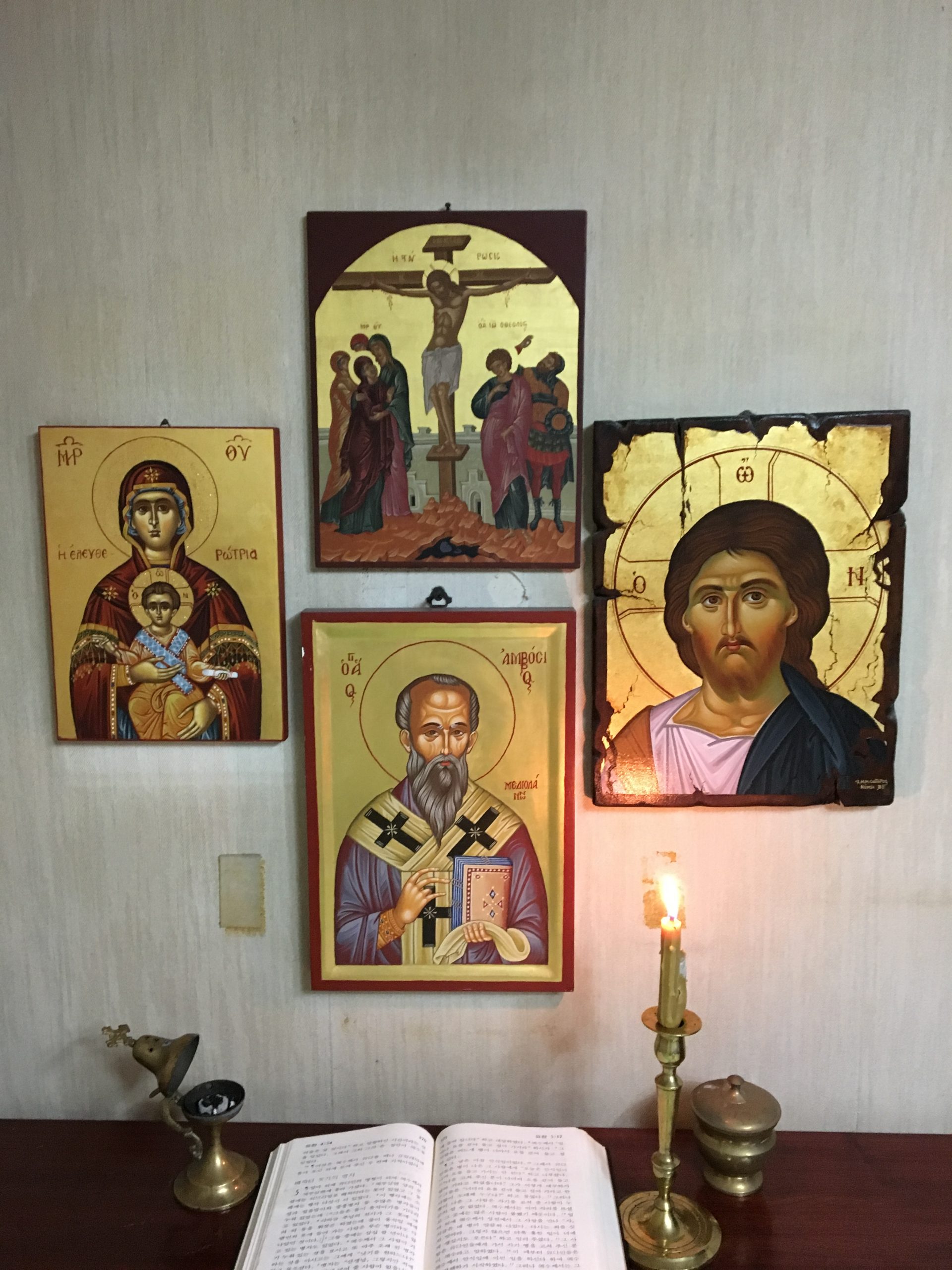
The Church’s strength, during these difficult and unpredictable times that humanity is experiencing due to the invisible coronavirus, is not manifested through careless and senseless acts. Some believe they are beyond any danger, that their perilous actions might not endanger the lives of those who congregate in places of worship.
Jesus did not succumb to the second temptation to manifest His strength by falling off the highest point of Solomon’s Temple; instead, He responded to this challenge by answering “Do Not Tempt the Lord Your God”.
The Church’s strength is demonstrated through its faithful, who, out of an increased sense of responsibility for the public’s welfare, will not attend Church services during this critical time period, but will remain home in prayer.
Is there a more glorious picture than when a whole family is gathered together, at home, on their knees, praying for the salvation of the whole world?
The Church’s strength is revealed by the number of “churches in the house” operated in every Parish. Furthermore, it is demonstrated, by the number of Christians, who follow Jesus’s command “of going into one’s room and praying to one’s Father in a secret place” (Mt. 6:6) and by those who continue the monastic tradition of prayer “in their cells”. At this point, it is very useful to remember the power of “prayer in the house” “of Maria, the mother of John, who was also known as Mark (Acts 12:12), in Jerusalem, through which, the Apostle Peter was freed from his chains while in prison.
The Church’s strength is further displayed by its believers who long to partake of the Holy Communion, especially during the period of the Great Lent; furthermore, it is also displayed, not only by partaking in the Holy Sacraments, but by the believers’ love toward society, when they have to patiently endure their being deprived of them. Let us remember that in the old times, monks would leave their communities, at the beginning of the Great Lent, and headed into the depths of the desert in order to pray in solitude. After forty days, they returned to their monasteries, on Lazarus’ Saturday, so that they may receive Holy Communion on Palm Sunday, eagerly longing to celebrate, together with the other monks the Holy Week and Holy Pascha. Really, how many monks achieved holiness, although they had been deprived of Holy Communion? And, how many Nuns in their Monasteries are deprived- even today- of receiving the Holy Gifts on a regular basis, due to the absence of priests?
The Church’s strength is also revealed by the fervent willingness of its members to voluntarily help their fellow human beings. During similar turbulent times, the Church with its clergy, deacons and laity members was always at the forefront providing humanitarian and philanthropic aid to those in need.
The following example, deriving from the life of the early Church, can be used as a benchmark for today’s Christians. In Alexandria, during the 4th century, the outbreak of a deadly plague killed thousands. Horror scenes were rampant across the city. Frightened people, in desperation, abandoned their relatives, seeking refuge on mountain tops and in the desert, trying to save themselves. However, during these devastating moments, according to the writings of a Church Historian, a miracle occurred. “Angels” made their appearance in the city. The city Christians acted like Angels by nursing the sick, regardless of the imminent danger to their own wellbeing. What happened next was that many sick people became well and many Christians died from the plague. This is a testimonial to the Church’s strength. A willingness to sacrifice in helping others and the world. This manifestation of strength is an integral part of the Orthodox Ethos. This is the tradition we have inherited by the Ancient Church and our Byzantine ancestors; a Church that implemented extensive philanthropic and social welfare programs.
Today, too, the people of the Church must strive to become an example for others to imitate. Some people do not abide by the government imposed measures, which aim at protecting us from the dangers of the ever present coronavirus. They wrongly choose to engage in behaviours that put at risk the welfare of other human beings, because they believe that a reduced workweek is a good enough reason for them to roam the streets, to spend time in the parks or to congregate along the riverside. Christians, however, must lead by example, that is, by remaining home and praying with a repentant heart for the whole world. This is the living strength of the Church.
Have a Happy Easter!
